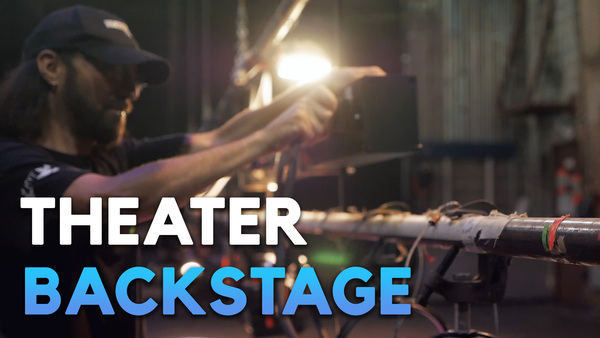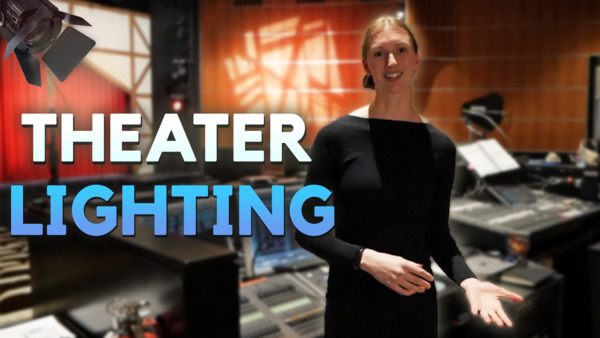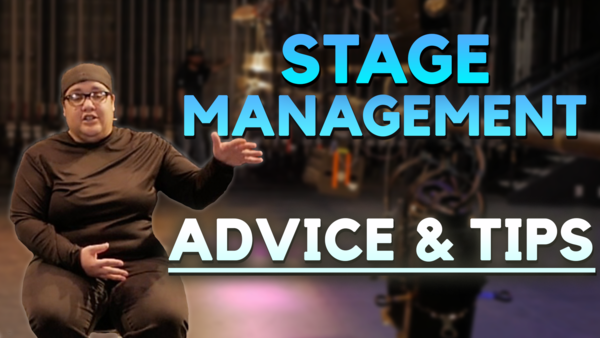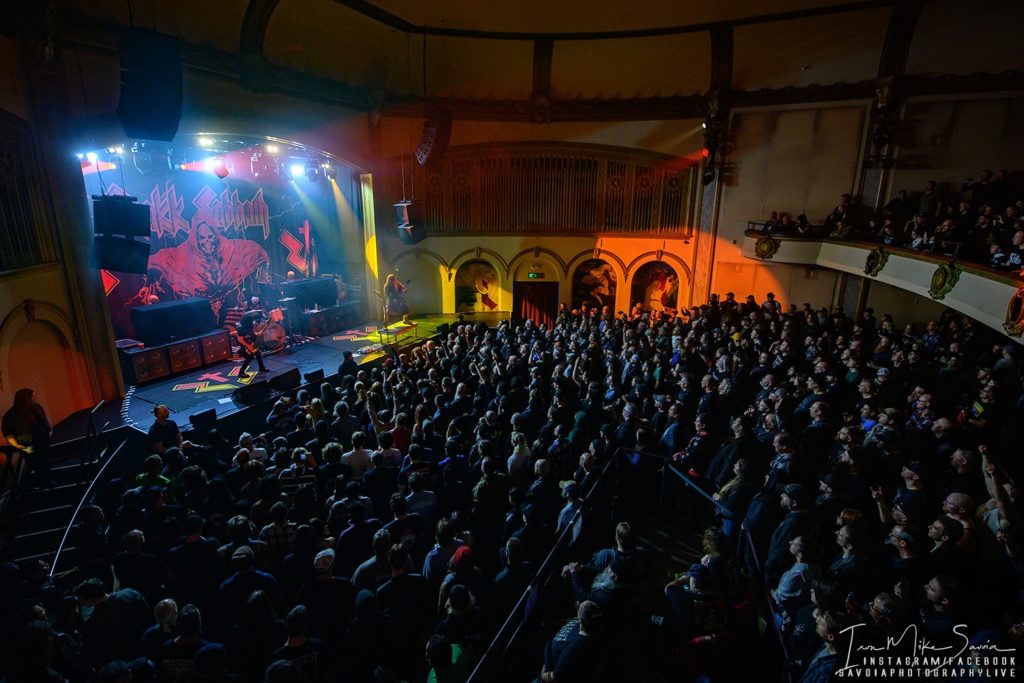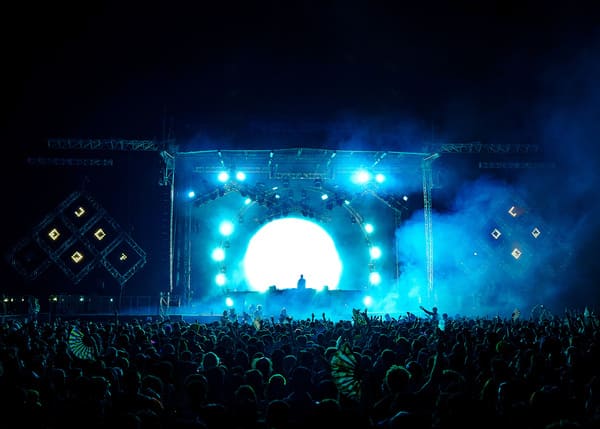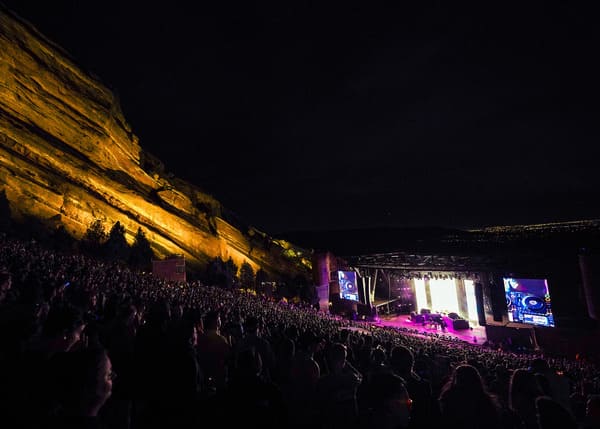Free Learning
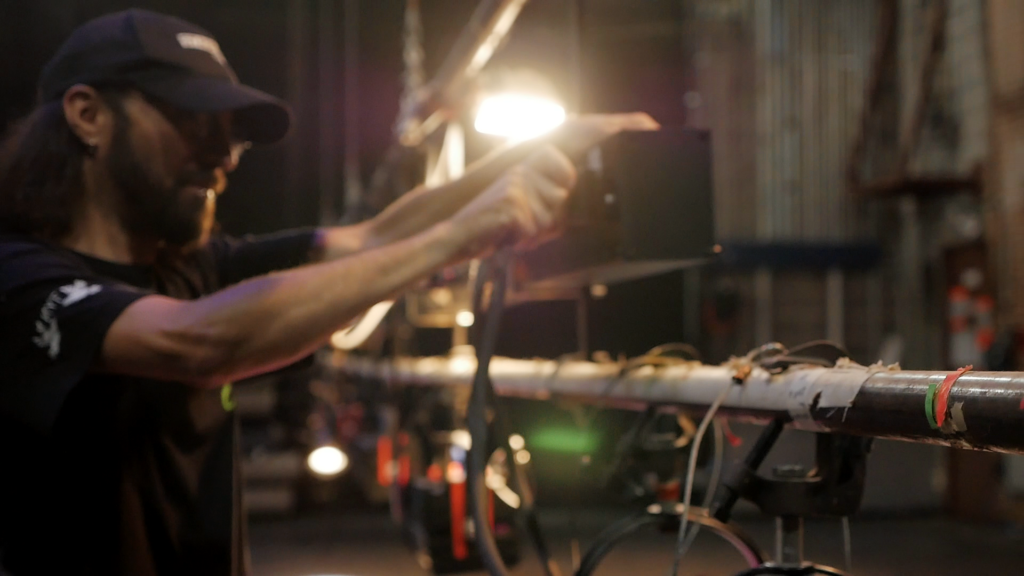
Free Learning
What Is A Stagehand?
The unsung heroes of live entertainment, stagehands are tasked with the setup and breakdown of all kinds of events. Known as the “Local Crew”, stagehands work hand in hand with touring roadies to transform empty spaces into unforgettable spectacles of live performance.
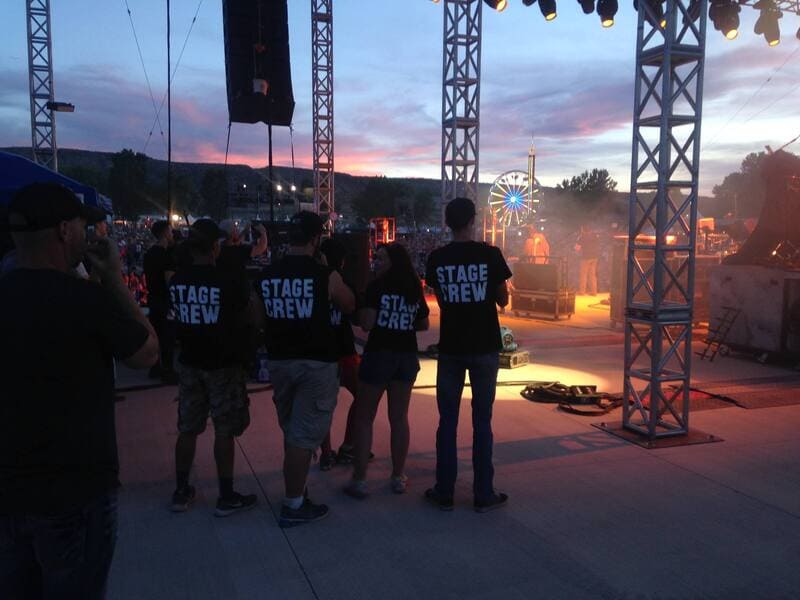
Load In – Show – Load Out
Whether it’s an arena, theater, stadium, or amphitheater, the day kicks off with the Load-In. As trucks are unloaded, the intricate dance of assembling a show begins. Staging, Lighting, Audio, and Video, converge. On Show-Call, a stagehand might be tasked with anything from doing set-changes, running a spotlight or camera, or assisting with other production needs. Load-Out kicks off immediately after the show ends, and the crew quickly takes down the rig and packs the equipment into its place on the trucks that take the show to the next city.
Crew Positions
Local Crew
- General Stagehands will be assigned to either Lighting, Audio, Video, Carps, Backline, Pyro, Automation, Loaders, or Pushers.
- Show Call is an exciting privilege, granting the opportunity to actively participate during the show as a deckhand, spotlight operator, camera operator, cable page, or wardrobe assistant.
- Advanced positions include riggers, forklift operators, and house production roles.
Touring Crew
- Tour crews are organized into distinct departments, each exclusively responsible for their own equipment. These departments can often take the form of separate companies or “vendors” bringing their own equipment and roadies. Roles are designated by their department initials and a number representing different responsibilities in the production. For example, A1 – Audio Engineer, A2 – Monitor Engineer, A3 – Audio Technician, and so on.

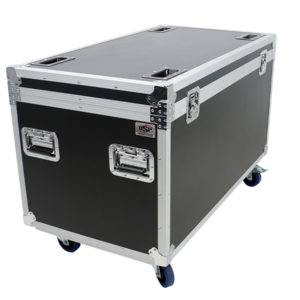
Types of Gigs
Arena Shows
Arena shows often run like a well-oiled machine. Arenas are multipurpose venues designed to support large events of all types. Equipped with loading docks and more space for rigging and storage, arenas can host massive shows and still have quick load in/load out times.
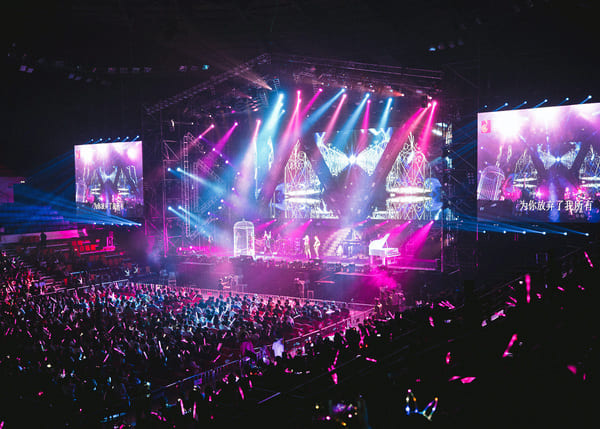
Theaters
Theaters often have smaller stages with limited space for rigging and storage, so equipment can be packed tight for a show. Every theater has its own unique atmosphere, and a smaller space means a more intimate show for the audience, and a more hands-on experience for stagehands. Each theater will have its own unique and intricate rigging system, with productions utilizing their in-house fly systems to implement the show’s lighting, video, and scenic elements.
Steel Builds
The first step in loading in any outdoor show or festival is the “steel build”. This is where the stage and truss structure is built to support the show’s production equipment. On steel builds, there can often be heavy machinery such as cranes and boom lifts. Be prepared for heavy lifting and long work days in the hot sun.
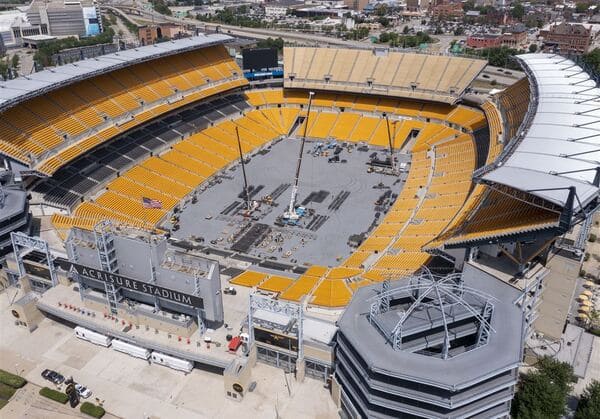
Festivals
Festivals embody the full spirit of outdoor concerts, they can be very large with multiple stages, and set in distant locations. Unique challenges are faced by “One-off” events like festivals, from crew and production logistics to weather, making each festival a one-of-a-kind journey.
Amphitheaters
Amphitheaters offer a unique canvas for mixing displays of sound and color with natural surroundings. With less space for equipment and rigging points, bigger shows are sometimes scaled down to fit the venue.
Your First Gig
- Your “Call time” will most likely be in the 24-hour format, as gigs are often early in the morning, late at night, or at any time in between. Always be checked in and ready to work at least 15 minutes before your call time, and factor in extra time for getting through event traffic and venue security.
- When the gig kicks off, you will be assigned to a department. Stay with your group and listen to the roadies–they’ve got the lowdown on everything. Ask questions if you’re unsure, and take any mistakes as an opportunity to learn.
- If you find yourself working around the performers, be professional. Don’t bother the talent or take any pictures.
- Every day is a new experience, with new opportunities for learning and connection. As you gain experience, you’ll discover yourself playing different roles in contributing to the creation of shows. Embrace the irregular hours and the seasonal work, and focus on building a well-rounded, diverse skill set to navigate the industry.
“The day begins with an empty canvas: a venue, a room, a stage. In a relatively short time, with a flurry of frantic but precisely coordinated activity, the space is transformed into a vehicle for entertainment. Staging, audio, lighting, video, all work together to create an experience. There’s an incredible sense of accomplishment and camaraderie watching a successful performance, knowing that the stage was empty that morning, and that the trucks will haul the show away by the next morning. On any given gig, one will have the opportunity to meet individuals from vastly different backgrounds, from different parts of the world, with varied experiences, coming together to put on a show. There are times that the work is extremely difficult; physically challenging, intellectually stimulating and, at times, emotionally draining. Yet, no matter how exhausting the work may be, no matter how long the hours, I’m always left with the thought, “when’s the next gig?”
Vernon Walker
Corporate Events
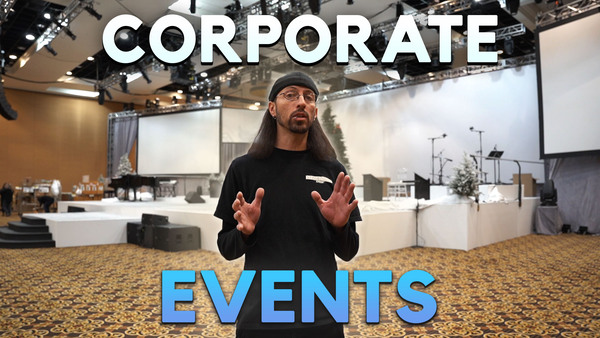
Corporate Events
The corporate events industry presents abundant opportunities for work and valuable experience. These business conventions take place in large hotel ballrooms or convention spaces serving as venues for various events. Working this side of production usually involves more hands-on AV work for a stagehand.

Theater
